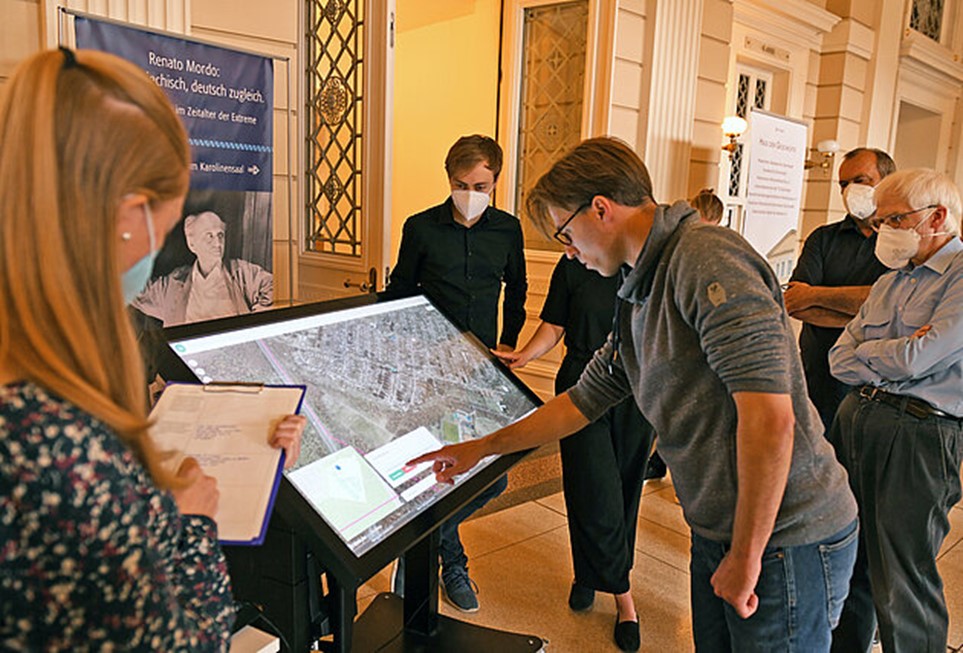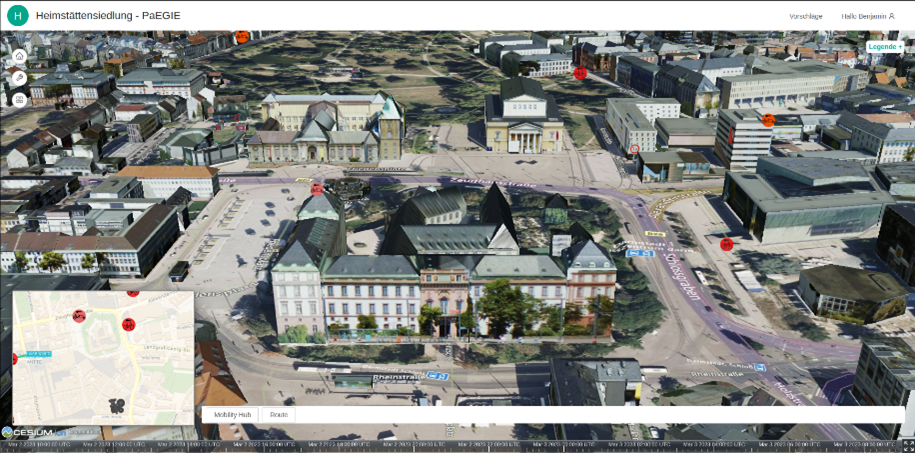
The energy transition requires a radical reorganisation of the socio-technical energy system in the electricity, heating, and transport sectors. The decarbonisation of the transport sector is not only a technical challenge, but above all a social one. In addition to technical and infrastructural innovations, both the need for a change in behaviour and the formulation of requirements for future means of transport by citizens are central. The PaEGIE project coordinated by the Technical University of Darmstadt (TUDa) has investigated how greater acceptance and a fundamental change in citizens' behaviour can be achieved through new forms of participation in the energy transformation.
The focus is on the design and implementation of bottom-up participation processes with innovative tools for the visual simulation of transport and mobility policy planning situations. The creation of responsibilities among the actors involved plays a decisive role here.
Fraunhofer IGD has developed a 3D application for the participatory planning of mobility concepts and the analysis of individual mobility behaviour. This interactive digital twin can be used in a variety of ways. The application can be operated both individually on a desktop computer and during a workshop format on a shared multi-touch table. This pursues the idea of a deliberative dialogue that supports the discussion of stakeholders (in this case the citizens) through problem-related scenarios and computer-aided visualisation as well as the underlying expert knowledge, so that citizens can make informed good decisions about the mobile future they want for their city.
The project was carried out in cooperation with the Wissenschaftsstadt Darmstadt, which made its 3D city model available for the realisation of the 3D application.
Please contact us for a live demo of the application.
 Fraunhofer Institute for Computer Graphics Research IGD
Fraunhofer Institute for Computer Graphics Research IGD
